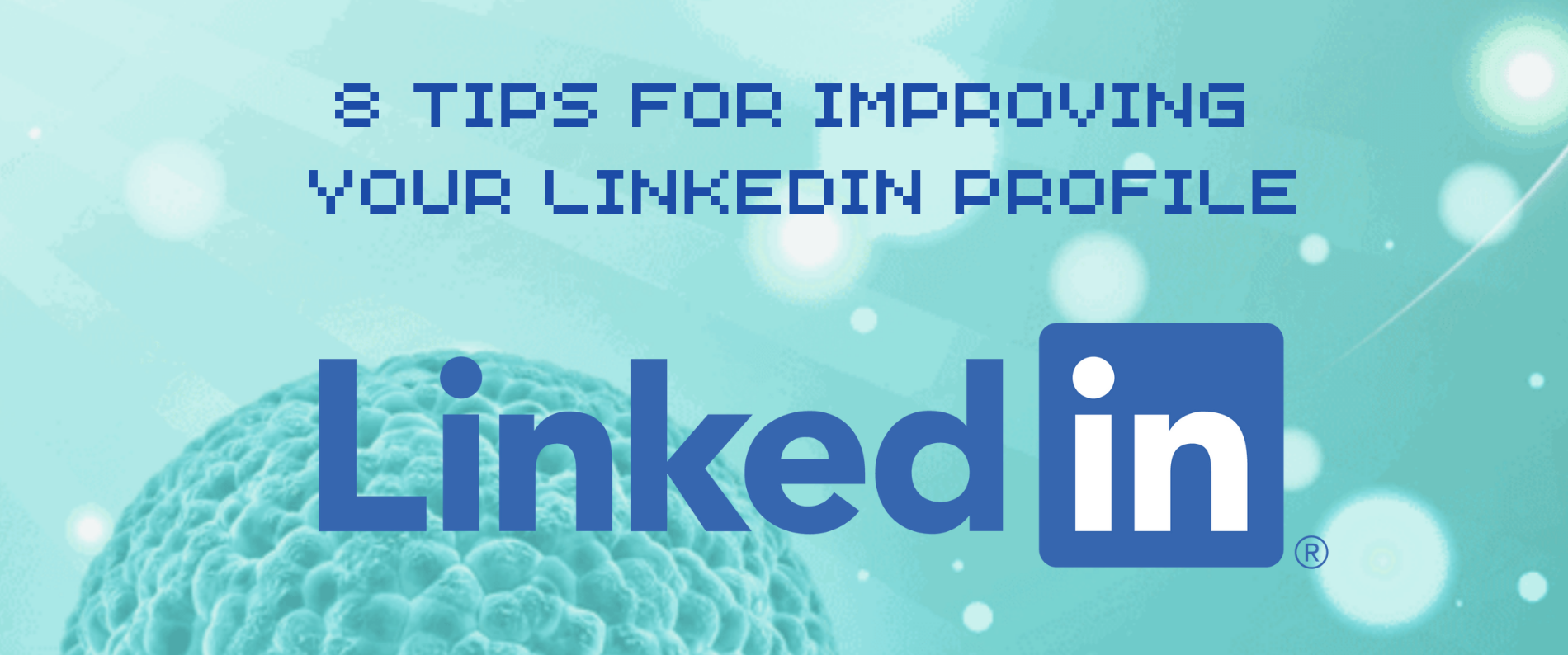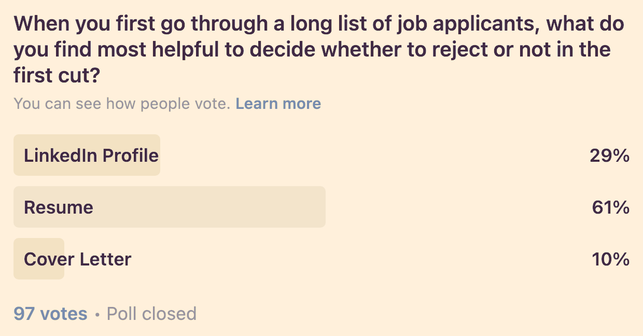|
As a startup founder, you wear many hats, including recruiter-in-chief. Assembling a team of high-achievers is crucial, but you won't always get it right. Knowing when and how to part ways with under-performers is a vital skill that you need to learn for the long-term success of your startup.
Startups are a labour of love, and the early team members are often close to the founders - either as friends, previous colleagues, or as people who've been deeply involved in the formative stages of the venture. This emotional attachment can make it exceedingly difficult to assess and act on under-performance objectively. If you're wracked with guilt, try to think about it this way: "Keeping someone in a job where they are unlikely to succeed could be thought of as an act of cruelty ... letting them go, to find something more suitable, is an act of compassion." The Domino Effect on Company Performance In a lean startup, every employee counts. Under-performers can consume a disproportionate amount of resources, hindering progress. Whether it's missing development deadlines or failing to hit targets, the effects of under-performance ripple through the company, affecting everyone's workload and the startup's ability to execute its vision. At seed or Series A level, finances are usually tight. The cost of retaining an under-performing team member goes beyond their salary; it also includes the opportunity cost of not having a high-achiever in their place. The Morale Quagmire The problem is usually visible for all to see, and its persistence can lead to resentment among team members who are pulling their weight. If you don't act, the rest of the team will lose respect for you - even if the person in question is their friend. The added stress of managing someone who is struggling can detract from your focus on core activities such as product development and fundraising. Tolerance for underperformance sets a precedent that can dilute your company culture and values over time. When to Say Goodbye Always give underperforming employees a chance to improve. Clearly communicate what needs to change and set a timeline for reassessment. After the stipulated period, assess the performance and make a call. If there’s no significant improvement, it's time to part ways. Make sure you consult a legal advisor to ensure that you are complying with all laws and regulations when letting someone go. How to Let Go When it comes to pulling the plug be honest but compassionate - share the reasons for the decision without berating the individual. Offer support - whether it's severance pay, career advice, or offering to serve as a reference for future opportunities that better match their skills, try to support the individual in their next steps. Address the situation with the remaining team members without divulging confidential information. This clears the air and resets the collective focus on the company's goals. Learning to let go of under-performers is an essential skill for startup founders. While emotionally challenging, the failure to act jeopardises your startup’s mission and undermines your team’s morale. Mastering this aspect of leadership ensures that you're nurturing an environment where everyone - your startup, your team, and even those you have to let go - has the best chance to thrive.
0 Comments
The Delicate Dance of Transition: When Scientific Founders Step Aside for a Commercial CEO14/9/2023 Starting a company based on scientific research or groundbreaking technology is no small feat. The journey from the laboratory to a viable business often demands a broad skill set, ranging from scientific expertise to entrepreneurial acumen.
Yet, one of the most challenging transitions scientific founders face comes not from the lab or market, but from within their own boardroom - when new investors suggest it's time for the founder to step aside as CEO in favour of a more commercial leader, usually around the time of a Series A funding round. Initial Reactions: Fear and Loss of Confidence For a founder, being asked to step aside can be an emotionally fraught experience. After all, the company is often the embodiment of years of hard work and personal sacrifice. Feelings of rejection or inadequacy may emerge, leading the founder to question their abilities and the value they bring to the enterprise they've nurtured from the ground up. The Silver Lining: A New Leader Can Unlock Untapped Potential Although initially challenging to accept, bringing in a commercial CEO can offer a wealth of benefits, both to the founder and the company as a whole. A CEO with a proven track record in business scaling, marketing, and operations can accelerate the company’s growth, expand market reach, and drive profits. Their different set of skills can complement the founder's deep scientific or technical knowledge, thus forming a well-rounded executive team. From CEO to Subject Matter Expert: A Fulfilling Transition Stepping aside from the CEO role doesn't mean a diminished role in the company. In fact, the opposite is often true. As the subject matter expert in the business around the science, the founder can now concentrate on research and development, innovation, and other scientific aspects that initially fueled their passion. In this specialized role, they can continue to make significant contributions to the company without the burden of day-to-day operations and managerial responsibilities. Over time, many founders find that they enjoy this more specialized role and the opportunity it offers to dive deep into the science or technology that excites them. The Responsibility of the Recruiter: Sensitivity and Support As for the person tasked with recruiting the new CEO, a human approach is crucial. It’s essential to appreciate the emotional investment and personal journey of the outgoing CEO, acknowledging that stepping aside is not an easy decision. Providing transparent communication throughout the process can mitigate some of the emotional challenges involved. Support shouldn’t stop once the new CEO is in place. Continued mentorship and regular check-ins can be valuable for the outgoing CEO as they adjust to their new role. This period is an opportunity for both personal and professional growth, but it often requires ongoing emotional support. Embracing the Change Transitioning leadership in a scientific startup is more than just a business decision; it’s an emotional journey for everyone involved. When handled with sensitivity and thoughtful planning, the transition can lead to a stronger, more successful company and happier, more fulfilled team members. The founder, while stepping back from the daily grind of being CEO, can relish the role of being the guiding scientific force behind the company. In doing so, they will not only continue to contribute to their venture's success but also find personal fulfillment in a role that leverages their true strengths and passions. to edit. Recruitment agencies can be a valuable resource for job seekers and employers alike, but not all agencies are created equal. Before engaging with a recruitment agency, it is important to understand the different types of recruiters and what they can offer you.
Methodology: First, there are tactical recruiters and strategic recruiters. Tactical recruiters focus on filling specific job openings as quickly as possible, while strategic recruiters take a more long-term approach, working with clients to identify and address their overall talent needs. Integrity: Learn the distinction between ethical and unethical recruiters. Ethical recruiters will always act in the best interests of both the job seeker and the employer, while unethical recruiters may prioritise their own financial gain over the needs of others. A recruiter with integrity will be honest and transparent in their dealings, while an unethical recruiter may be more likely to cut corners or bend the truth. Commitment: Tenacity is another key trait to look for in a recruiter. A tenacious recruiter will work tirelessly to find the right candidate for a job, while a less committed recruiter may give up too easily. Track Record: A high fill rate is also an important consideration. A recruiter with a high fill rate is likely to have a good track record of successfully placing candidates in jobs, while an opportunist recruiter may be more focused on making a quick profit. Motivation: Another consideration is whether the agency is service delivery or sales focussed. Service delivery focussed agencies will work to deliver the best service possible, while sales focussed agencies will be more focused on making a sale. Philosophy: Are you about to engage a consultant and a job filler? A consultant will work with clients to understand their unique needs and develop a tailored solution, while a job filler will simply try to fill any job that comes their way. They tend to take on every job and then hope to fill a small percentage of them through luck. Specialisation: Finally, it's important to consider whether a recruiter is a niche or generalist. A niche recruiter will have specialised knowledge and experience in a particular field, while a generalist will have a broader range of experience across different industries and job types. When engaging with a recruitment agency, it is important to ask the right questions to ensure that they are the right fit for your needs. Some key questions to ask include:
By understanding the different types of recruiters and asking the right questions, you can increase your chances of finding an agency that is the right fit for your needs. You've decided on a career move, and made it all the way to a job offer. You're excited about the new opportunity, but when you go to resign, your manager begs you to stay, offering a sweetener to encourage you to do so.
Accepting a counter offer from your current employer after you've already accepted a job offer from another company may seem like the best of both worlds, but in reality, it's a decision that can lead to many negative consequences. Here are a few reasons why you should think twice before accepting a counter offer:
Accepting a counter offer can have negative consequences that far outweigh any short-term gains. If you're truly unhappy in your current job, it's best to take the leap and explore new opportunities. If you're unsure about your decision, it's important to weigh the pros and cons and consider the potential long-term effects on your career and your relationships. With over 870 million users worldwide, LinkedIn is hard to ignore, yet job seekers neglect their profiles. If you are considering a career move, it is essential to ensure your LinkedIn profile is as strong as possible. Recently we ran an informal survey on LinkedIn to find out what hiring managers rely on most when deciding which candidates to shortlist. The results are illuminating. While resumes still carry more weight, nearly 30% of respondents say they would rather look at your LinkedIn profile first. This number was even higher for professional recruiters and talent acquisition professionals while hiring managers still favour the resume.
Right or wrong, it is hard to ignore the fact that a solid LinkedIn profile is an important part of your application toolkit when it comes to job hunting. With that in mind, here are eight tips to help you improve your LinkedIn profile:
Remember, the more effort you put into your profile, the better your chances of being contacted for new career opportunities. If you have aspirations to become a successful entrepreneur, or to work for a start-up, some personal qualities are non-negotiable. If you read this list and think to yourself, 'perhaps that is not me,' you really need to have a long hard think about whether this is going to be the right career choice for you.
Equally, if are a candidate applying to work in a start-up environment, then you should articulate these qualities in your professional profile and can back them up with examples from your life experiences. Your future employer will want to know that you have what it takes.
The old year is done and the new one just begun. You're relaxed and focussed after the holidays and raring to go with your strategic plan for the year. But, day one back at your desk and... so many priorities! Here's why recruitment should be at the top of the list.
Whatever plans you have to grow your team there is really no time to waste. Do the math - on average it takes about 4 to 8 weeks to hire, so if you start today (let's assume it's mid-January) then you are looking at late February to mid-March before anyone signs on - at best. Then there's the notice period - call it a month by the time your new hire has decided to take a short break between jobs. Optimistically, you are looking at an April start and, chances are, it will be after Easter. That's a quarter of the way through the year already! Secondly - think about the candidate supply. January is a window of opportunity to pick up candidates that may not be nearly as receptive later in the year. Put yourself in their shoes. Those that love their job aren't looking. But if they're not so sure and they didn't quit before Christmas, then there is nothing more depressing than coming back to your desk after the holidays. The reality is that many have either resolved to look for new work in the new year or become open to the idea as soon as they come back to work. By February, they are often too busy to think about it or back into the swing of things. Worse still, a competitor hired them out from under you while you were working out your priorities. Don't miss the January window to hire good people. It won't come around again for another year. WHAT TO LOOK OUT FOR ... AND SOME SMART QUESTIONS TO ASKThe world is full of recruiters, but if you're a company founder, you've probably noticed that they could do better at serving the needs of innovators and start-ups.
In truth, most serve corporate and multinational clients' needs, and their business offering is structured to reflect that. As a founder, this can be frustrating, so here is some context to help you understand how to choose and interact with agencies and some tips in the form of questions to ask a recruiter before engaging with them. STRUCTURE: A typical recruitment firm has multiple offices and many recruiters - mostly junior - often in their first year in the industry. They hire for sales skills and attributes (not service delivery), which reflects their business development and remuneration model. They have a high turnover of staff. HOW THEY SEE YOU: Start-ups are seen by some recruiters as low-value, price-sensitive and high-maintenance clients, compared to corporates with high volume and predictable recruitment needs. You will be low on their priority list. HOW THEY ARE INCENTIVISED: Agency recruiters have high billing targets and are expected to pick up many jobs, hoping to fill enough (30-40%) to meet their targets. They compete directly with other agencies on the same roles, so candidates may be contacted by several agencies for the same position, leading to ugly disputes over candidate ownership. NECESSARY EVIL OR VALUED PARTNER?: Recruiters are often opportunistic - an approach that can work for corporates, who favour their in-house recruitment teams and see agencies as a backstop when all else fails. However, as a start-up with limited resources, you need a much higher fill rate from your recruiter. ADVERTISING OR SEARCH?: Because of their high volume and low percentage fill approach, agency recruiters tend to rely on advertising more than search. They use 'blind' advertising (they don't mention your company by name) as a defensive move to keep competitors at bay rather than for your benefit. FEE STRUCTURE: Recruiters typically base their fee structure on percentages of salary packages. This model works for high-volume corporate clients where salaries are predictable. However, for a start-up, there may be a wide variance in compensation for a particular role leading to uncertainty around where the final fee may land. QUESTIONS TO ASK YOUR RECRUITER As a start-up founder looking for a recruiter to help you source talent there are some good questions to included on your briefing process: Will you fix a fee? This clarifies exactly what the hire will cost you, irrespective of the package the candidate ends up taking. Also don't be afraid to ask for staggered or flexible terms if this helps you with cash flow as a small business. What are your refund terms? Be clear to understand what you will get if the candidate is unsuitable or pulls out early. Make sure to keep track of deadlines for refunds so you don't get caught out. What search methodology do you use? This will help you understand to what extent the recruiter will be pursuing multiple channels to find candidates and not just posting an ad and hoping for the best. You really want to know that they are actively precision-targeting candidates on your behalf. What percentage of your jobs do you fill? This can give you some indication of how committed they are to filling your role proactively rather than just running a desk with lots of prospects and oping that some of them will work out. How will you present the candidates to me? Just resume? Resume and report? Video of the candidate? Make sure you know what will help you determine if the candidate is suitable for your needs before you commit the time to interview them. Have you worked with start-ups before? This will give you some insight into whether they understand the challenges that a start-up faces when recruiting and whether they know which candidates will thrive in a start-up environment. Who will be working on my job? Make sure you know which team member is going what are the recruiter end. Make sure you are dealing directly with the person that you brief and not a sales person who will pass the role onto someone that does not understand your needs. How will you sell my business to candidates? You want to know that the recruiter will positively reflect on your business and employment brand. Make sure they have supporting material to share with candidates. A curious thing about start-up board building is that it often seems to circumvent the principles of recruitment best practice. Not a great idea.
Board recruitment is a specialised discipline, but it is a recruitment process none-the-less and should have all the right checks and balances, particularly given that recruiting the right board for your start-up is so critical to success. Early-stage founders may feel that they need to approach potential board members with a level of deference that can rob them of objectivity. In our experience potential board appointees are, in fact, flattered to be approached, realistic about their suitability and magnanimous when not appointed for rational reasons. After all, they are generally world-wise, successful professionals with little to prove. They are rarely motivated by financial gain (a red flag if they are), have a genuine desire to help start-ups by sharing their knowledge and will only take on projects that they find inspiring. With that in mind here are a few pointers on to how to approach board recruitment so that you get it right first time and treat candidates with the respect that they deserve. DO’s
DON’TS
If you wish to enquire about how Luka Bio can assist you with the search and appointment of a board member or chairperson contact Dr. John Bethell here. The holidays are nearly upon us and 'tis the season to kick back and have some fun. Every year we design a card to send well-wishes to everyone. This year we thought we might go with one of the major themes of the year - the rise and rise of AI. It's everywhere. Most of the start-ups we work with seek AI or ML programming skills and popular culture has fully embraced it. Alexa and Siri seem just a little smarter and publicly available on-line AI software seems to be doing everything from writing poetry to composing music to creating visual art. So what does an AI-designed seasons greeting card look like? Well this is where we landed... A bit freaky, huh? That's what it looks like, but we thought it worth explaining how we got there. Basically we wanted to blend some of the typical themes of the holiday season with some deeptech ideas, so we signed up to DALL-E and asked for designs based on words like "DNA" and "Phage" with "Christmas Tree". Some of the various iterations were truly bizarre... To mix it up, we asked for some of the designs in the style of various famous artists such as Picasso, Van Gough and David Hockney - interesting to see how DNA is interpreted through some of those filters. Oh... and we threw in the occasional reindeer for fun. So there you have it. Happy holidays from the team at LUKA GLOBAL! Happy to hear your comments - both on the aesthetics and also the wider implication of the infiltration of AI into our lives. It's only going to be more prevalent. See you next year ... |
AuthorJohn Bethell is and advisor to LUKA GLOBAL and a director of Wavelength International. He has 30+ years in recruitment delivery, coaching & mentorship. Archives
September 2023
Categories |














 RSS Feed
RSS Feed